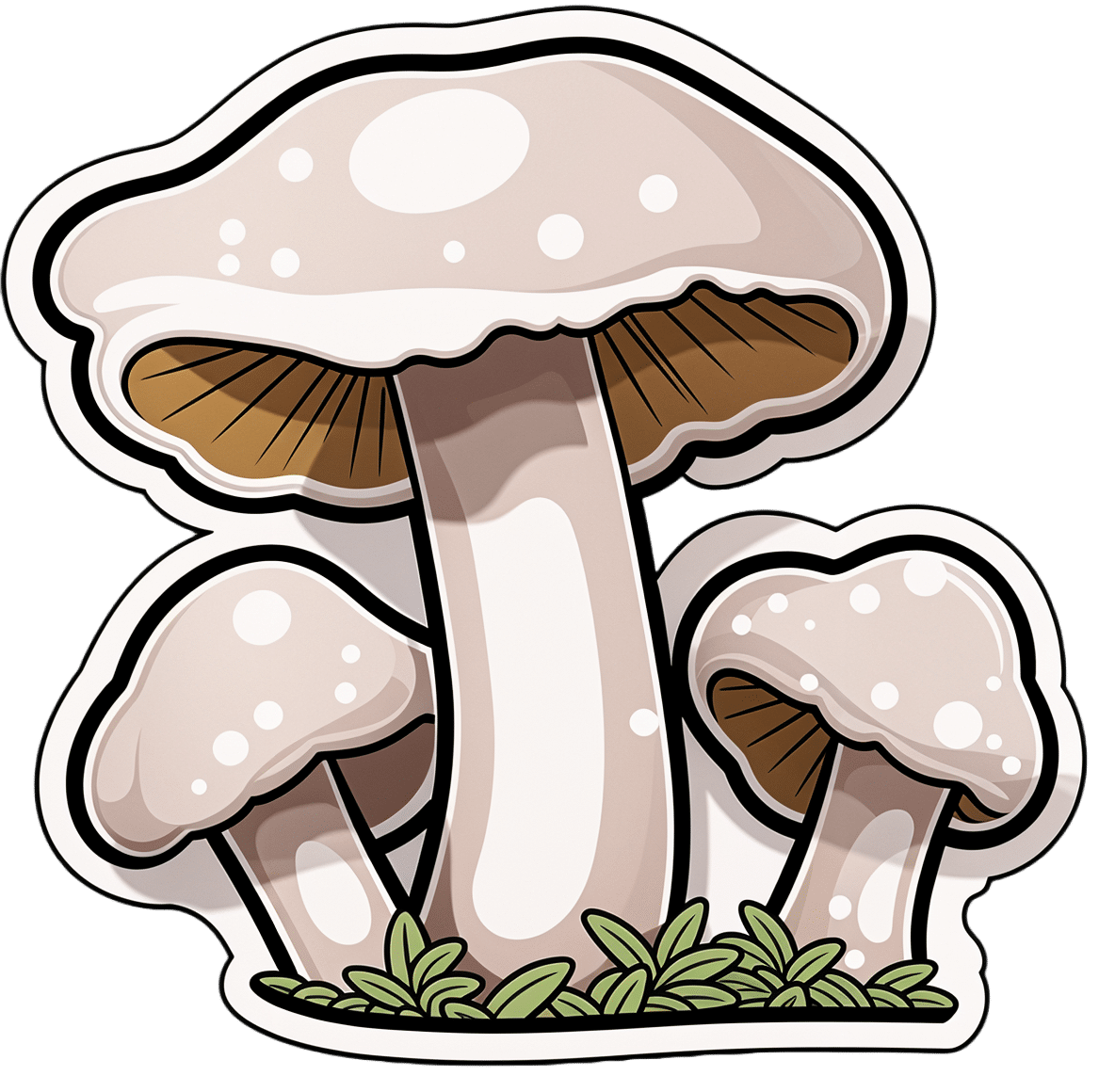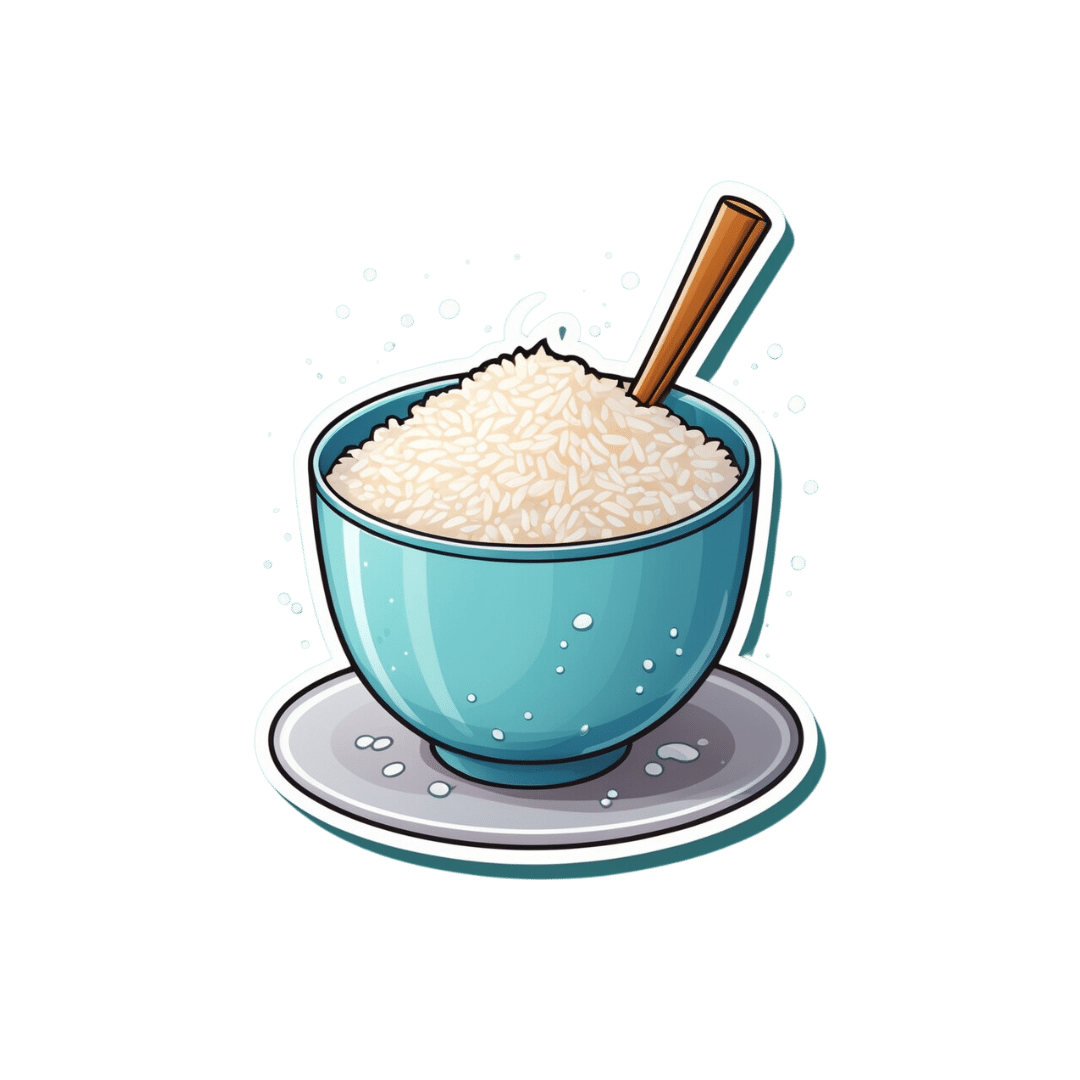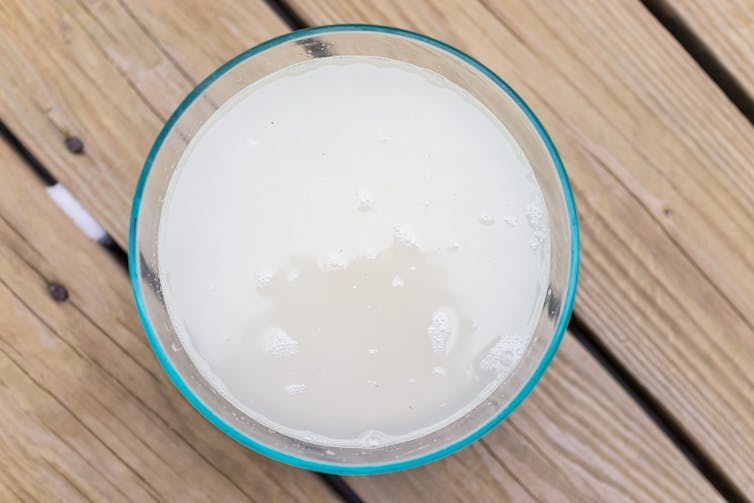
“The Longevity Vitamin” (That’s Not A Vitamin)
10almonds is reader-supported. We may, at no cost to you, receive a portion of sales if you purchase a product through a link in this article.
The Magic of Mushrooms
“The Longevity Vitamin that’s not a vitamin” is a great tagline for what’s actually an antioxidant amino acid nutraceutical, but in this case, we’re not the ones spearheading its PR, but rather, the Journal of Nutritional Science:
Is ergothioneine a “longevity vitamin” limited in the American diet?
It can be found in all foods, to some extent, but usually in much tinier amounts than would be useful. The reason for this is that it’s synthesized by a variety of microbes (mostly fungi and actinobacteria), and enters the food chain via vegetables that are grown in soil that contain such (which is basically all soil, unless you were to go out of your way to sterilize it, or something really unusually happened).
About those fungi? That includes common popular edible fungi, where it is found quite generously. An 85g (3oz) portion of (most) mushrooms contains about 5mg of ergothioneine, the consumption of which is associated with a 16% reduced all-cause mortality:
However… Most Americans don’t eat that many mushrooms, and those polled averaged 1.1mg/day ergothioneine (in contrast with, for example, Italians’ 4.6mg/day average).
Antioxidant properties
While its antioxidant properties aren’t the most exciting quality, they are worth a mention, on account of their potency:
The biology of ergothioneine, an antioxidant nutraceutical
This is also part of its potential bid to get classified as a vitamin, because…
❝Decreased blood and/or plasma levels of ergothioneine have been observed in some diseases, suggesting that a deficiency could be relevant to the disease onset or progression❞
Source: Ergothioneine: a diet-derived antioxidant with therapeutic potential
Healthy aging
Building on from the above, ergothioneine has been specifically identified as being associated with healthy aging and the prevention of cardiometabolic diseases:
❝An increasing body of evidence suggests ergothioneine may be an important dietary nutrient for the prevention of a variety of inflammatory and cardiometabolic diseases and ergothioneine has alternately been suggested as a vitamin, “longevity vitamin”, and nutraceutical❞
~ Dr. Bernadette Moore et al., citing more references every few words there
Source: Ergothioneine: an underrecognised dietary micronutrient required for healthy ageing?
Good for the heart = good for the brain
As a general rule of thumb, “what’s good for the heart is good for the brain” is almost always true, and it appears to be so in this case, too:
❝Ergothioneine crosses the blood–brain barrier and has been reported to have beneficial effects in the brain. In this study, we discuss the cytoprotective and neuroprotective properties of ergotheioneine, which may be harnessed for combating neurodegeneration and decline during aging.❞
Source: Ergothioneine: A Stress Vitamin with Antiaging, Vascular, and Neuroprotective Roles?
Want to get some?
You can just eat a portion of mushrooms per day! But if you don’t fancy that, it is available as a supplement in convenient 1/day capsule form too.
We don’t sell it, but for your convenience, here is an example product on Amazon
Enjoy!
Don’t Forget…
Did you arrive here from our newsletter? Don’t forget to return to the email to continue learning!
Recommended
Learn to Age Gracefully
Join the 98k+ American women taking control of their health & aging with our 100% free (and fun!) daily emails:
-
How To Avoid Carer Burnout (Without Dropping Care)
10almonds is reader-supported. We may, at no cost to you, receive a portion of sales if you purchase a product through a link in this article.
How To Avoid Carer Burnout
Sometimes in life we find ourselves in a caregiving role.
Maybe we chose it. For example, by becoming a professional carer, or even just by being a parent.
Oftentimes we didn’t. Sometimes because our own parents now need care from us, or because a partner becomes disabled.
Philosophical note: an argument could be made for that latter also having been a pre-emptive choice; we probably at some point said words to the effect of “in sickness and in health”, hopefully with free will, and hopefully meant it. And of course, sometimes we enter into a relationship with someone who is already disabled.
But, we are not a philosophy publication, and will henceforth keep to the practicalities.
First: are you the right person?
Sometimes, a caregiving role might fall upon you unasked-for, and it’s worth considering whether you are really up for it. Are you in a position to be that caregiver? Do you want to be that caregiver?
It may be that you do, and would actively fight off anyone or anything that tried to stop you. If so, great, now you only need to make sure that you are actually in a position to provide the care in question.
It may be that you do want to, but your circumstances don’t allow you to do as good a job of it as you’d like, or it means you have to drop other responsibilities, or you need extra help. We’ll cover these things later.
It may be that you don’t want to, but you feel obliged, or “have to”. If that’s the case, it will be better for everyone if you acknowledge that, and find someone else to do it. Nobody wants to feel a burden, and nobody wants someone providing care to be resentful of that. The result of such is two people being miserable; that’s not good for anyone. Better to give the job to someone who actually wants to (a professional, if necessary).
So, be honest (first with yourself, then with whoever may be necessary) about your own preferences and situation, and take steps to ensure you’re only in a caregiving role that you have the means and the will to provide.
Second: are you out of your depth?
Some people have had a life that’s prepared them for being a carer. Maybe they worked in the caring profession, maybe they have always been the family caregiver for one reason or another.
Yet, even if that describes you… Sometimes someone’s care needs may be beyond your abilities. After all, not all care needs are equal, and someone’s condition can (and more often than not, will) deteriorate.
So, learn. Learn about the person’s condition(s), medications, medical equipment, etc. If you can, take courses and such. The more you invest in your own development in this regard, the more easily you will handle the care, and the less it will take out of you.
And, don’t be afraid to ask for help. Maybe the person knows their condition better than you, and certainly there’s a good chance they know their care needs best. And certainly, there are always professionals that can be contacted to ask for advice.
Sometimes, a team effort may be required, and there’s no shame in that either. Whether it means enlisting help from family/friends or professionals, sometimes “many hands make light work”.
Check out: Caregiver Action Network: Organizations Near Me
A very good resource-hub for help, advice, & community
Third: put your own oxygen mask on first
Like the advice to put on one’s own oxygen mask first before helping others (in the event of a cabin depressurization in an airplane), the rationale is the same here. You can’t help others if you are running on empty yourself.
As a carer, sometimes you may have to put someone else’s needs above yours, both in general and in the moment. But, you do have needs too, and cannot neglect them (for long).
One sleepless night looking after someone else is… a small sacrifice for a loved one, perhaps. But several in a row starts to become unsustainable.
Sometimes it will be necessary to do the best you can, and accept that you cannot do everything all the time.
There’s a saying amongst engineers that applies here too: “if you don’t schedule time for maintenance, your equipment will schedule it for you”.
In other words: if you don’t give your body rest, your body will break down and oblige you to rest. Please be aware this goes for mental effort too; your brain is just another organ.
So, plan ahead, schedule breaks, find someone to take over, set up your cared-for-person with the resources to care for themself as well as possible (do this anyway, of course—independence is generally good so far as it’s possible), and make the time/effort to get you what you need for you. Sleep, distraction, a change of scenery, whatever it may be.
Lastly: what if it’s you?
If you’re reading this and you’re the person who has the higher care needs, then firstly:all strength to you. You have the hardest job here; let’s not forget that.
About that independence: well-intentioned people may forget that, so don’t be afraid to remind them when “I would prefer to do that myself”. Maintaining independence is generally good for the health, even if sometimes it is more work for all concerned than someone else doing it for you. The goal, after all, is your wellbeing, so this shouldn’t be cast aside lightly.
On the flipside: you don’t have to be strong all the time; nobody should.
Being disabled can also be quite isolating (this is probably not a revelation to you), so if you can find community with other people with the same or similar condition(s), even if it’s just online, that can go a very, very long way to making things easier. Both practically, in terms of sharing tips, and psychologically, in terms of just not feeling alone.
See also: How To Beat Loneliness & Isolation
Share This Post
-
Longevity Noodles
10almonds is reader-supported. We may, at no cost to you, receive a portion of sales if you purchase a product through a link in this article.
Noodles may put the “long” into “longevity”, but most of the longevity here comes from the ergothioneine in the mushrooms! The rest of the ingredients are great too though, including the noodles themselves—soba noodles are made from buckwheat, which is not a wheat, nor even a grass (it’s a flowering plant), and does not contain gluten*, but does count as one of your daily portions of grains!
*unless mixed with wheat flour—which it shouldn’t be, but check labels, because companies sometimes cut it with wheat flour, which is cheaper, to increase their profit margin
You will need
- 1 cup (about 9 oz; usually 1 packet) soba noodles
- 6 medium portobello mushrooms, sliced
- 3 kale leaves, de-stemmed and chopped
- 1 shallot, chopped, or ¼ cup chopped onion of any kind
- 1 carrot, diced small
- 1 cup peas
- ½ bulb garlic, minced
- 2 tbsp rice vinegar
- 1 tsp grated fresh ginger
- 1 tsp black pepper, coarse ground
- 1 tsp red chili flakes
- ½ tsp MSG or 1 tbsp low-sodium soy sauce
- Avocado oil, for frying (alternatively: extra virgin olive oil or cold-pressed coconut oil are both perfectly good substitutions)
Method
(we suggest you read everything at least once before doing anything)
1) Cook the soba noodles per the packet instructions, rinse, and set aside
2) Heat a little oil in a skillet, add the shallot, and cook for about 2 minutes.
3) Add the carrot and peas and cook for 3 more minutes.
4) Add the mushrooms, kale, garlic, ginger, peppers, and vinegar, and cook for 1 more minute, stirring well.
5) Add the noodles, as well as the MSG or low-sodium soy sauce, and cook for yet 1 more minute.
6) Serve!
Enjoy!
Want to learn more?
For those interested in some of the science of what we have going on today:
- Rice vs Buckwheat – Which is Healthier?
- The Magic Of Mushrooms: “The Longevity Vitamin” (That’s Not A Vitamin)
- Monosodium Glutamate: Sinless Flavor-Enhancer Or Terrible Health Risk?
- Our Top 5 Spices: How Much Is Enough For Benefits? ← 4/5 of these spices are in today’s dish!
Take care!
Share This Post
-
What Does “Balance Your Hormones” Even Mean?
10almonds is reader-supported. We may, at no cost to you, receive a portion of sales if you purchase a product through a link in this article.
Hormonal Health: Is It Really A Balancing Act?
Have you ever wondered what “balancing your hormones” actually means?
The popular view is that men’s hormones look like this:
Testosterone (less) ⟷ Testosterone (more)
…And that women’s hormones look more like this:
♀︎ Estrogen ↭ Progesterone ⤵︎
⇣⤷ FSH ⤦ ↴ ☾ ⤹⤷ Luteinizing Hormone ⤦
DHEA ↪︎ Gonadotrophin ⤾
↪︎ Testosterone? ⥅⛢
Clear as mud, right?
But, don’t worry, Supplements McHerbal Inc will sell you something guaranteed to balance your hormones!
How can a supplement (or dietary adjustment) “balance” all that hotly dynamic chaos, and make everything “balanced”?
The truth is, “balanced” in such a nebulous term, and this is why you will not hear endocrinologists using it. It’s used in advertising to mean “in good order”, and “not causing problems”, and “healthy”.
In reality, our hormone levels depend on everything from our diet to our age to our anatomy to our mood to the time of the day to the phase of the moon.
Not that the moon has an influence on our physiology at all—that’s a myth—but you know, 28 day cycle and all. And, yes, half the hormones affect the levels of the others, either directly or indirectly.
Trying to “balance” them would be quite a game of whack-a-mole, and not something that a “cure-all” single “hormone-balancing” supplement could do.
So why aren’t we running this piece on Friday, for our “mythbusting” section? Well, we could have, but the more useful information is yet to come and will take up more of today’s newsletter than the myth-busting!
What, then, can we do to untangle the confusion of these hormones?
Well first, let’s understand what they do, in the most simple terms possible:
- Estrogen—the most general feminizing hormone from puberty onwards, busiest in the beginning of the menstrual cycle, and starts getting things ready for ovulation.
- Progesterone—secondary feminizing hormone, fluffs the pillows for the oncoming fertilized egg to be implanted, increases sex drive, and adjusts metabolism accordingly. Busiest in the second half of the menstrual cycle.
- Testosterone—is also present, contributes to sex drive, is often higher in individuals with PCOS. If menopause is untreated, testosterone will also rise, because there will be less estrogen
- (testosterone and estrogen “antagonize” each other, which is the colorfully scientific way of saying they work against each other)
- DHEA—Dehydroepiandrosterone, supports production of testosterone (and estrogen!). Sounds self-balancing, but in practice, too much DHEA can thus cause elevated testosterone levels, and thus hirsutism.
- Gonadotrophin—or more specifically human chorionic gonadotrophin, HcG, is “the pregnancy hormone“, present only during pregnancy, and has specific duties relating to such. This is what’s detected in (most) pregnancy test kits.
- FSH—follicle stimulating hormone, is critical to ovulation, and is thus essential to female fertility. On the other hand, when the ovaries stop working, FSH levels will rise in a vain attempt to encourage the ovulation that isn’t going to happen anymore.
- Luteinizing hormone—says “go” to the new egg and sends it on its merry way to go get fertilized. This is what’s detected by ovulation prediction kits.
Sooooooo…
What, for most women, most often is meant by a “hormonal imbalance” is:
- Low levels of E and/or P
- High levels of DHEA and/or T
- Low or High levels of FSH
In the case of low levels of E and/or P, the most reliable way to increase these is, drumroll please… To take E and/or P. That’s it, that’s the magic bullet.
Bonus Tip: take your E in the morning (this is when your body will normally make more and use more) take your P in the evening (it won’t make you sleepy, but it will improve your sleep quality when you do sleep)
In the case of high levels of DHEA and/or T, then that’s a bit more complex:
- Taking E will antagonize (counteract) the unwanted T.
- Taking T-blockers (such as spironolactone or bicalutamide) will do what it says on the tin, and block T from doing the jobs it’s trying to do, but the side-effects are considered sufficient to not prescribe them to most people.
- Taking spearmint or saw palmetto will lower testosterone’s effects
- Scientists aren’t sure how or why spearmint works for this
- Saw palmetto blocks testosterone’s conversion into a more potent form, DHT, and so “detoothes” it a bit. It works similarly to drugs such as finasteride, often prescribed for androgenic alopecia, called “male pattern baldness”, but it affects plenty of women too.
In the case of low levels of FSH, eating leafy greens will help.
In the case of high levels of FSH, see a doctor. HRT (Hormone Replacement Therapy) may help. If you’re not of menopausal age, it could be a sign something else is amiss, so it could be worth getting that checked out too.
What can I eat to boost my estrogen levels naturally?
A common question. The simple answer is:
- Flaxseeds and soy contain plant estrogens that the body can’t actually use as such (too incompatible). They’ve lots of high-quality nutrients though, and the polyphenols and isoflavones can help with some of the same jobs when it comes to sexual health.
- Fruit, especially peaches, apricots, blueberries, and strawberries, contain a lot of lignans and also won’t increase your E levels as such, but will support the same functions and reduce your breast cancer risk.
- Nuts, especially almonds (yay!), cashews, and pistachios, contain plant estrogens that again can’t be used as bioidentical estrogen (like you’d get from your ovaries or the pharmacy) but do support heart health.
- Leafy greens and cruciferous vegetables support a lot of bodily functions including good hormonal health generally, in ways that are beyond the scope of this article, but in short: do eat your greens!
Note: because none of these plant-estrogens or otherwise estrogenic nutrients can actually do the job of estradiol (the main form of estrogen in your body), this is why they’re still perfectly healthy for men to eat too, and—contrary to popular “soy boy” social myths—won’t have any feminizing effects whatsoever.
On the contrary, most of the same foods support good testosterone-related health in men.
The bottom line:
- Our hormones are very special, and cannot be replaced with any amount of herbs or foods.
- We can support our body’s natural hormonal functions with good diet, though.
- Our hormones naturally fluctuate, and are broadly self-correcting.
- If something gets seriously out of whack, you need an endocrinologist, not a homeopath or even a dietician.
In case you missed it…
We gave a more general overview of supporting hormonal health (including some hormones that aren’t sex hormones but are really important too), back in February.
Check it out here: Healthy Hormones And How To Hack Them
Want to read more?
Anthea Levi, RD, takes much the same view:
❝For some ‘hormone-balancing’ products, the greatest risk might simply be lost dollars. Others could come at a higher cost.❞
Share This Post
Related Posts
-
Sweet Dreams Are Made of THC (Or Are They?)
10almonds is reader-supported. We may, at no cost to you, receive a portion of sales if you purchase a product through a link in this article.
It’s Q&A Day at 10almonds!
Have a question or a request? We love to hear from you!
In cases where we’ve already covered something, we might link to what we wrote before, but will always be happy to revisit any of our topics again in the future too—there’s always more to say!
As ever: if the question/request can be answered briefly, we’ll do it here in our Q&A Thursday edition. If not, we’ll make a main feature of it shortly afterwards!
So, no question/request too big or small 😎
❝I’m one of those older folks that have a hard time getting 7 hrs. I know a lot of it my fault…like a few beers at nite…🥰am now trying THC gummies for anxiety, instead of alcohol……less calories 😁how does THC affect our sleep,? Safer than alcohol…..I know your next article 😊😊😊😊❣️😊alot of us older kids do take gummies 😲😲😲thank you❞
Great question! We wrote a little about CBD gummies (not THC) before:
…and went on to explore THC’s health benefits and risks here:
For starters, let’s go ahead and say: you’re right that it’s safer (for most people) than alcohol—but that’s not a strong claim, because alcohol is very bad for pretty much everything, including sleep.
So how does THC measure up when it comes to sleep quality?
Good news: it affects the architecture of sleep in such a way that you will spend longer in deep sleep (delta wave activity), which means you get more restorative and restful sleep!
See also: Alpha, beta, theta: what are brain states and brain waves? And can we control them?
Bad news: it does so at the cost of reducing your REM sleep, which is also necessary for good brain health, and will cause cognitive impairment if you skip too much. Normally, if you are sleep-deprived, the brain will prioritize REM sleep at the cost of other kinds of sleep; it’s that important. However, if you are chemically impaired from getting healthy REM sleep, there’s not much your brain can do to save you from the effects of REM sleep loss.
See: Cannabis, Cannabinoids, and Sleep: a Review of the Literature
This is, by the way, a reason that THC gets prescribed for some sleep disorders, in cases where the initial sleep disruption was because of nightmares, as it will reduce those (along with any other dreams, as collateral damage):
One thing to be careful of if using THC as a sleep aid is that withdrawal may make your symptoms worse than they were to start with:
Updates in the use of cannabis for insomnia
With all that in mind, you might consider (if you haven’t already tried it) seeing whether CBD alone improves your sleep, as while it does also extend time in deep sleep, it doesn’t reduce REM nearly as much as THC does:
👆 this study was paid for by the brand being tested, so do be aware of potential publication bias. That’s not to say the study is necessarily corrupt, and indeed it probably wasn’t, but rather, the publication of the results was dependent on the company paying for them (so hypothetically they could have pulled funding from any number of other research groups that didn’t get the results they wanted, leaving this one to be the only one published). That being said, the study is interesting, which is why we’ve linked it, and it’s a good jumping-off-point for finding a lot of related papers, which you can see listed beneath it.
CBD also has other benefits of its own, even without THC:
CBD Oil: What Does The Science Say?
Take care!
Don’t Forget…
Did you arrive here from our newsletter? Don’t forget to return to the email to continue learning!
Learn to Age Gracefully
Join the 98k+ American women taking control of their health & aging with our 100% free (and fun!) daily emails:
-
Ricezempic: is there any evidence this TikTok trend will help you lose weight?
10almonds is reader-supported. We may, at no cost to you, receive a portion of sales if you purchase a product through a link in this article.
If you spend any time looking at diet and lifestyle content on social media, you may well have encountered a variety of weight loss “hacks”.
One of the more recent trends is a home-made drink called ricezempic, made by soaking uncooked rice and then straining it to drink the leftover starchy water. Sounds delicious, right?
Its proponents claim it leads to weight loss by making you feel fuller for longer and suppressing your appetite, working in a similar way to the sought-after drug Ozempic – hence the name.
So does this drink actually mimic the weight loss effects of Ozempic? Spoiler alert – probably not. But let’s look at what the evidence tells us.
New Africa/Shutterstock How do you make ricezempic?
While the recipe can vary slightly depending on who you ask, the most common steps to make ricezempic are:
- soak half a cup of white rice (unrinsed) in one cup of warm or hot water up to overnight
- drain the rice mixture into a fresh glass using a strainer
- discard the rice (but keep the starchy water)
- add the juice of half a lime or lemon to the starchy water and drink.
TikTokers advise that best results will happen if you drink this concoction once a day, first thing in the morning, before eating.
The idea is that the longer you consume ricezempic for, the more weight you’ll lose. Some claim introducing the drink into your diet can lead to a weight loss of up to 27 kilograms in two months.
Resistant starch
Those touting ricezempic argue it leads to weight loss because of the resistant starch rice contains. Resistant starch is a type of dietary fibre (also classified as a prebiotic). There’s no strong evidence it makes you feel fuller for longer, but it does have proven health benefits.
Studies have shown consuming resistant starch may help regulate blood sugar, aid weight loss and improve gut health.
Research has also shown eating resistant starch reduces the risk of obesity, diabetes, heart disease and other chronic diseases.
Ricezempic is made by soaking rice in water. Kristi Blokhin/Shutterstock Resistant starch is found in many foods. These include beans, lentils, wholegrains (oats, barley, and rice – particularly brown rice), bananas (especially when they’re under-ripe or green), potatoes, and nuts and seeds (particularly chia seeds, flaxseeds and almonds).
Half a cup of uncooked white rice (as per the ricezempic recipe) contains around 0.6 grams of resistant starch. For optimal health benefits, a daily intake of 15–20 grams of resistant starch is recommended. Although there is no concrete evidence on the amount of resistant starch that leaches from rice into water, it’s likely to be significantly less than 0.6 grams as the whole rice grain is not being consumed.
Ricezempic vs Ozempic
Ozempic was originally developed to help people with diabetes manage their blood sugar levels but is now commonly used for weight loss.
Ozempic, along with similar medications such as Wegovy and Trulicity, is a glucagon-like peptide-1 (GLP-1) receptor agonist. These drugs mimic the GLP-1 hormone the body naturally produces. By doing so, they slow down the digestive process, which helps people feel fuller for longer, and curbs their appetite.
While the resistant starch in rice could induce some similar benefits to Ozempic (such as feeling full and therefore reducing energy intake), no scientific studies have trialled ricezempic using the recipes promoted on social media.
Ozempic has a long half-life, remaining active in the body for about seven days. In contrast, consuming one cup of rice provides a feeling of fullness for only a few hours. And simply soaking rice in water and drinking the starchy water will not provide the same level of satiety as eating the rice itself.
Other ways to get resistant starch in your diet
There are several ways to consume more resistant starch while also gaining additional nutrients and vitamins compared to what you get from ricezempic.
1. Cooked and cooled rice
Letting cooked rice cool over time increases its resistant starch content. Reheating the rice does not significantly reduce the amount of resistant starch that forms during cooling. Brown rice is preferable to white rice due to its higher fibre content and additional micronutrients such as phosphorus and magnesium.
2. More legumes
These are high in resistant starch and have been shown to promote weight management when eaten regularly. Why not try a recipe that has pinto beans, chickpeas, black beans or peas for dinner tonight?
3. Cooked and cooled potatoes
Cooking potatoes and allowing them to cool for at least a few hours increases their resistant starch content. Fully cooled potatoes are a rich source of resistant starch and also provide essential nutrients like potassium and vitamin C. Making a potato salad as a side dish is a great way to get these benefits.
In a nutshell
Although many people on social media have reported benefits, there’s no scientific evidence drinking rice water or “ricezempic” is effective for weight loss. You probably won’t see any significant changes in your weight by drinking ricezempic and making no other adjustments to your diet or lifestyle.
While the drink may provide a small amount of resistant starch residue from the rice, and some hydration from the water, consuming foods that contain resistant starch in their full form would offer significantly more nutritional benefits.
More broadly, be wary of the weight loss hacks you see on social media. Achieving lasting weight loss boils down to gradually adopting healthy eating habits and regular exercise, ensuring these changes become lifelong habits.
Emily Burch, Accredited Practising Dietitian and Lecturer, Southern Cross University and Lauren Ball, Professor of Community Health and Wellbeing, The University of Queensland
This article is republished from The Conversation under a Creative Commons license. Read the original article.
Don’t Forget…
Did you arrive here from our newsletter? Don’t forget to return to the email to continue learning!
Learn to Age Gracefully
Join the 98k+ American women taking control of their health & aging with our 100% free (and fun!) daily emails:
-
9 Reasons To Avoid Mobility Training
10almonds is reader-supported. We may, at no cost to you, receive a portion of sales if you purchase a product through a link in this article.
Why might someone not want to do mobility training? Here are some important reasons:
Make an informed choice
Here’s Liv’s hit-list of reasons to skip mobility training:
- Poor Circulation: Avoid mobility training if you don’t want to improve or maintain good blood circulation, which aids muscle recovery and reduces soreness.
- Low Energy Levels: Mobility training increases oxygen flow to the brain and muscles, boosting energy. Skip it if you prefer feeling sluggish!
- Digestive Health: Stretches that rotate the torso aid digestion and relieve bloating. Definitely best to avoid it if you’re uninterested in improving digestive health.
- Joint Health: Mobility work stimulates synovial fluid production, reducing joint friction and promoting longevity. You can skip it if you don’t care about comfortable movement.
- Sleep Quality: Gentle stretching triggers relaxation, aiding restful sleep. Avoid it if you enjoy restless nights!
- Pain Tolerance: Stretching trains the nervous system to handle discomfort better. Skip it if you prefer suffering 🙂
- Headache Reduction: Mobility work relieves tension in the neck and shoulders, reducing the occurrence and severity of headaches. No need to do it if you’re fine with frequent headaches.
- Immune System Support: Mobility training boosts lymphatic circulation, aiding the immune system. Avoid it if you prefer your immune system to get exciting in a bad way.
- Stress Reduction: Mobility exercises release endorphins and lower cortisol levels, reducing stress. So, it is certainly best to skip it if you prefer feeling stressed and enjoy the many harmful symptoms of high cortisol levels!
For more on all of these, enjoy:
Click Here If The Embedded Video Doesn’t Load Automatically!
Want to learn more?
You might also like to read:
Mobility As Though A Sporting Pursuit: Train For The Event Of Your Life!
Take care!
Don’t Forget…
Did you arrive here from our newsletter? Don’t forget to return to the email to continue learning!
Learn to Age Gracefully
Join the 98k+ American women taking control of their health & aging with our 100% free (and fun!) daily emails:










